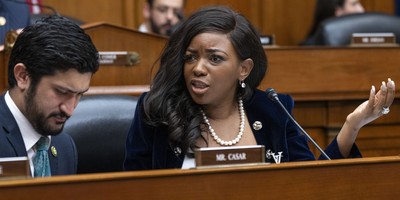Throughout this year, the public spotlight in the U.S. has been focused squarely on health care. With the COVID-19 pandemic continuing to pose a significant risk to Americans, discussions have been ongoing about how to best improve access to care while keeping costs at a minimum. Unfortunately, surprise medical bills remain a major concern for both patients and their medical providers.
Surprise medical bills represent a major obstacle toward affordable health care in the U.S. Patients often find themselves receiving one of these unexpected charges after they visit a doctor outside of their network without realizing it. Believing that their insurance will cover the cost of the care, they only find out later on that they are actually the one who is stuck with the bill. For many, these costs can be devastating.
As long as the risk of surprise medical bills continues to loom over Americans, many will still question whether they are able to afford the health care they need. Similarly, doctors and health care providers suffer from these situations, given that they often struggle to receive fair compensation from insurance companies in cases where there is a surprise bill.
Thankfully, President Trump is working to get ahead of this problem and has made bringing an end to surprise medical billing a priority. He has tasked Congress with finding a solution, with the aim of finally providing relief to patients at a time when access to affordable care is more important than ever before.
However, some members of Congress have taken this opportunity to propose a system where the government sets the rates, which could be disastrous for several reasons.
As the Kentucky-based Pegasus Institute explained in a recent podcast, government price controls simply do not work, especially when it comes to health care. Government rate-setting would only create an environment where patients have more limited access to treatment, and the options that remain are more expensive.
Recommended
With the government setting price controls, big insurance companies would simply be free to unleash a wide-scale lobbying effort to push for rates that are favorable to them. The unrealistically deflated rates that result from this effort will leave small providers completely unable to compete, in turn driving many to close their doors altogether. As discussed in the Pegasus Institute’s podcast, this represents a particularly significant danger to Americans in rural areas, who already have limited options for health care. Lawmakers, especially Senate Majority Leader Mitch McConnell, cannot allow this to happen given the ongoing COVID-19 pandemic.
Instead, as Congress works to answer President Trump’s call and put legislation on his desk that will bring surprise medical bills to a halt once and for all, they should use the arbitration system outlined in Senator Bill Cassidy’s (R-LA) STOP Surprise Medical Bills Act.
Arbitration, which uses an independent third-party arbiter to settle cost disputes between providers and insurers, has proven hugely successful in states like Texas and Florida that have adopted it. Furthermore, it takes an added burden off of patients and allows them to instead focus on their treatment and recovery, rather than on how they are going to pay off their surprise bill.
Over the years, the government has tried to set rates on all types of products and services, all with the same result. Price controls are a failed solution that will only result in fewer health care options for Americans and make it harder for them to afford reliable care for themselves and their families. In working with President Trump to fix surprise medical billing, I trust that our elected officials in Washington, D.C. realize that fact and steer away from government rate-setting.
Jesse Grady attends Maryland Law, is a former Regional Field Director for the Texas GOP, and a former staff member of President Donald J. Trump’s 2016 campaign























Join the conversation as a VIP Member